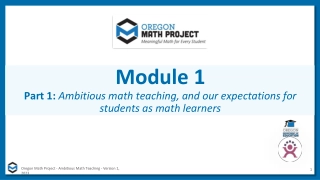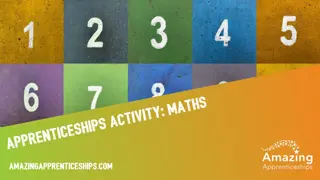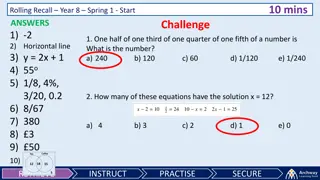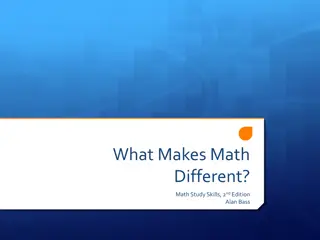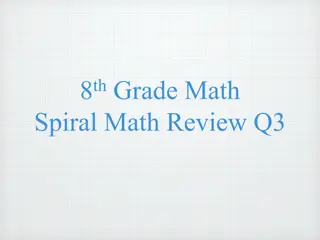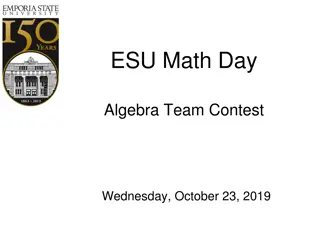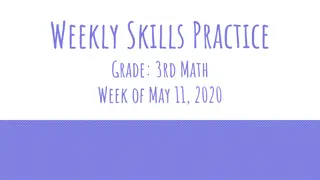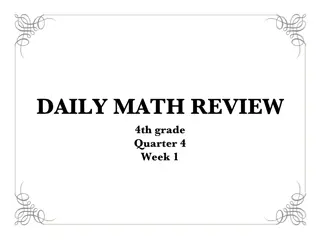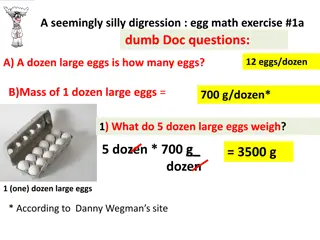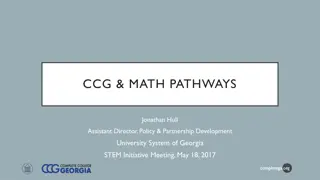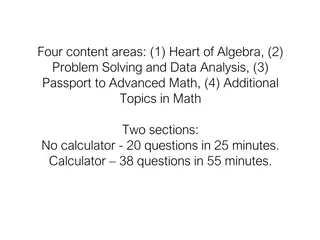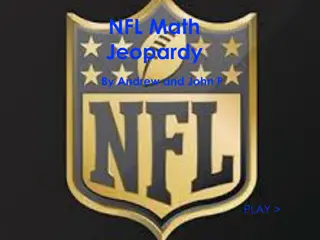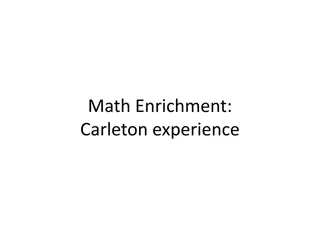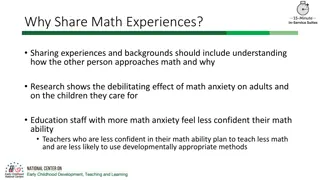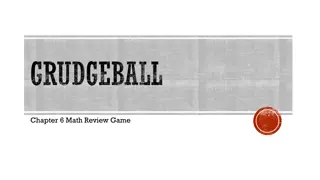Math Concepts for Kids
Engaging worksheets and visuals to help children practice basic math calculations, multiples, and grouping using fun scenarios like dividing cakes and forming teams. Encourages critical thinking and understanding of numbers in a playful way.
Download Presentation

Please find below an Image/Link to download the presentation.
The content on the website is provided AS IS for your information and personal use only. It may not be sold, licensed, or shared on other websites without obtaining consent from the author.If you encounter any issues during the download, it is possible that the publisher has removed the file from their server.
You are allowed to download the files provided on this website for personal or commercial use, subject to the condition that they are used lawfully. All files are the property of their respective owners.
The content on the website is provided AS IS for your information and personal use only. It may not be sold, licensed, or shared on other websites without obtaining consent from the author.
E N D
Presentation Transcript
1) Complete the calculations 3 3 = 10 3 = 3 6 = 3 11 = 2) Circle the multiples of 3 14 6 10 15 36 24 20 3) Here are some cubes. How many groups of 3 are there?
1) Complete the calculations 3 3 = 10 3 = 9 30 3 6 = 3 11 = 18 33 2) Circle the multiples of 3 14 6 10 15 36 24 20 3) Here are some cubes. How many groups of 3 are there? 4
The children are playing a game. They need to divide themselves into three teams. How many will be in each team? There are 2 children in each team.
Now the children need to get into teams of 3 How many teams of 3 will there be? There are 2 teams of 3 children.
= 2 6 3 Shared into 3 equal teams There are 2 children in each team. Grouped into teams of 3 There are 2 groups of 3 children.
Here are 21 cakes. Have a think They are shared equally between 3 plates. They are divided into groups of 3
They are shared equally between 3 plates. There will be 7 cakes on each plate. 21 3 = 7
They are divided into groups of 3 There will be 7 plates of 3 cakes. 21 3 = 7
Have a go at questions 1 - 3 on the worksheet
Which bar model shows 30 3? 30 3 3 3 3 3 3 3 3 3 3 30 divided into groups of 3 Have a think 30 10 10 10 30 divided into 3 equal parts
Which numbers will divide exactly by 3? 33 13 3 3 3 3 1 11 11 11 23 27 8 8 7 3 3 3 3 3 3 3 3 3 Have a think
24 3 = 8 The baker has 24 tarts. He puts 3 tarts into each box. How many boxes can he fill? + 3 0 3 6 9 12 15 18 21 24 3 0 3 6 9 12 15 18 21 24
Have a go at questions 4 - 7 on the worksheet
When you add three consecutive numbers, the total can always be divided equally by 3 Is this statement correct? 1 + 2 + 3 = 6 5 + 6 + 7 = 18 9 + 10 + 11 = 30 6 3 = 2 18 3 = 6 30 3 = 10 Is it possible to make every multiple of 3 using a sum of 3 consecutive numbers?


